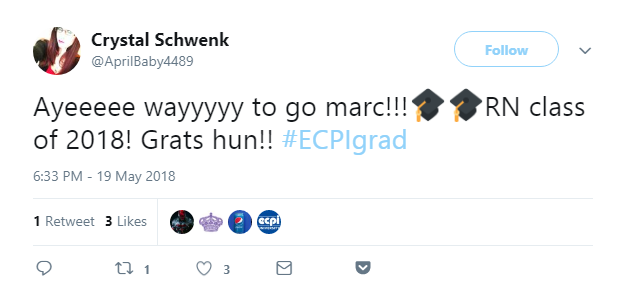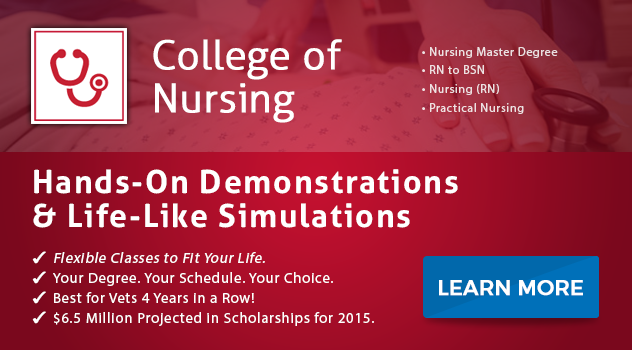How to Become a Nurse: A Guide to the ADN Degree
The 21st-century nurse practices in a corporate environment that is driven by market forces and client demand. Future technological advances will profoundly impact the way health care is administered. Nurses are taking on increasing levels of responsibility and practicing in non-traditional situations. You are as likely to get a job as an academic nurse writer, cruise ship nurse or a legal nurse consultant as you are in a hospital, clinic, residential care home or doctor's office. What can you do to prepare yourself for a career in millennium nursing?
It may surprise you, but formal education beyond high school is important to get started in nursing. The demand for nurses in the United States is projected to increase by 15 percent in the years leading to 2026, more than twice the average rate of all professions nationally. This is because of a growing population of seniors and concomitant. Despite this, employers have to maintain a high standard.
Inoculate your nursing career with an Associate of Applied Science in Nursing
An ADN is more than an academic qualification that looks good on your resume and gives the human resources bots something to search for. Getting an ADN offers you a comprehensive grounding in what you need to know in the real nursing world. You should acquire knowledge in such essential areas as:
- Human anatomy
- Pharmacology
- Concepts in nursing
- Mental health nursing
- Medical, surgical, and acute care nursing
- Psychology
The ADN curriculum will help you prepare for the nursing license exam, the NCLEX. A nurse needs to be able to communicate with all different kinds of people, both verbally and in writing. You will also need to be able to calculate drug dosages based on a patient's weight and perform other mathematical operations. An awareness of culture and diversity is also essential for dealing with the public, not to mention your colleagues in the medical profession. All of these subjects are covered by the ADN curriculum.
Putting your ADN to work for you
You can use your ADN to get an entry-level position and establish yourself on the career ladder. Once you've got your feet under the table, you can take advantage of a tuition reimbursement program to finance a higher degree, should your employer offer it. Meanwhile, you're racking up points for employment experience that will look help you compete in the employment market. This approach requires advance planning and a bit of homework to identify those employers that offer this facility.
Preparing to start your ADN
In addition to enrolling in a suitable nursing degree program, there are other things you can and should do to prepare to get started on your nursing career. Three of these are essential:
- Learn CPR. This is a requirement for many ADN programs. It will also convey to the admission team that you are committed to and capable of taking in new information.
- Update your immunizations. Institutes of nursing education, as well as hospitals and other health care venues, differ in their requirements. Make sure you have the basics: Tetanus, Hepatitis B, Mumps, Meningitis, Rubella, TB, pertussis, and chickenpox.
- Take the Test of Essential Academic Skills (TEAS). This tests your abilities in reading, science and mathematics. A good score on this is essential for getting into many nursing studies programs, so make sure you spend some time preparing for it.
Get involved in community service or volunteer work. Even if you don't volunteer in a medical environment, the admissions committee will look at the fact that you're involved in a positive light.
Make an appointment to visit any nursing schools you are interested in applying to. Sit on classes and mingle with other students.
Try to spend as much time as you can shadowing a nurse on the job. You will get invaluable insight into the duties and responsibilities that may be expected of you, and you will pick up useful intel from the interpersonal actions between the medical professionals, the patients, and ancillary professions.
Start networking. Follow nurses and nursing resources on Twitter. Get to know as many students and professional nurses as you can. Focus on those institutions that you are specifically interested in studying with or working for. Keep an eye out for people who might be in a position to write you a glowing recommendation letter.
If You Aren't Accepted the First Time, There's Always Another Chance
Don't give up. Many highly qualified applicants aren't admitted on their first, second or even their third attempt. Multiple attempts won't make you look like a loser. They will make you look like someone with an enduring commitment to the profession who is likely to go the distance and not drop out of school at the first hurdle.
Are you interested in becoming a nurse? If you want to earn an Associate of Applied Science in Nursing, ECPI University offers this degree program at an accelerated pace. For more information about this exciting degree, connect with a knowledgeable admissions representative today.
It could be the Best Decision You Ever Make!
DISCLAIMER – ECPI University makes no claim, warranty, or guarantee as to actual employability or earning potential to current, past or future students or graduates of any educational program we offer. The ECPI University website is published for informational purposes only. Every effort is made to ensure the accuracy of information contained on the ECPI.edu domain; however, no warranty of accuracy is made. No contractual rights, either expressed or implied, are created by its content.
Gainful Employment Information – Nursing - Associate’s
For more information about ECPI University or any of our programs click here: http://www.ecpi.edu/ or http://ow.ly/Ca1ya.




